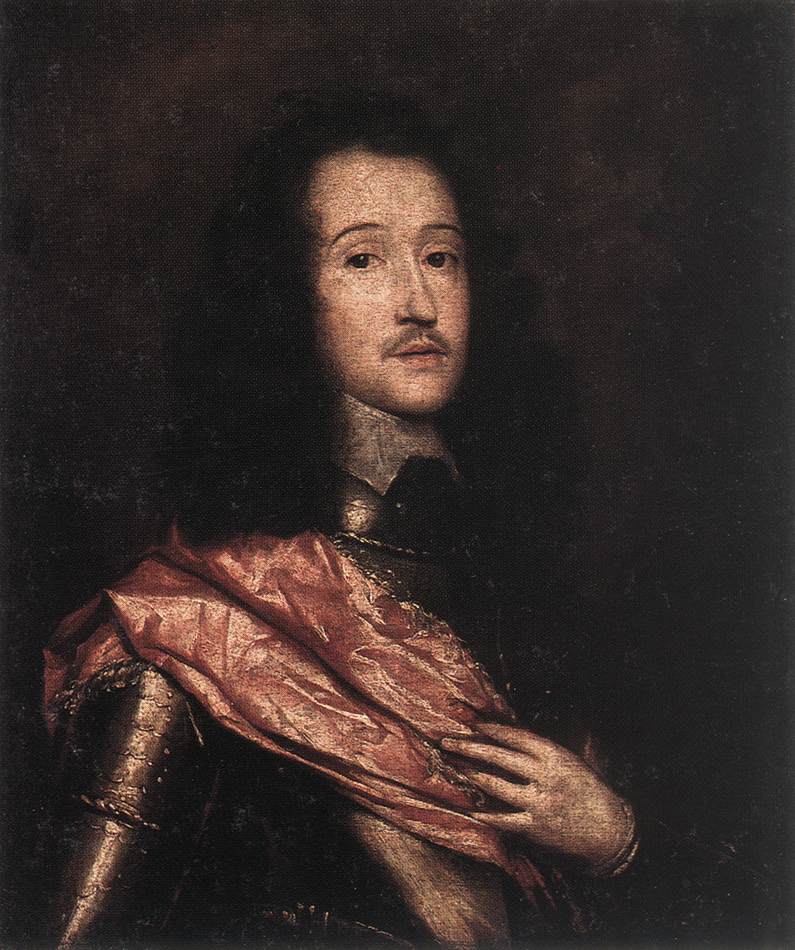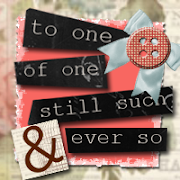It is an opera: I Puritani. I Puritani is an Italian opera composed by Bellini, and it's a particular favourite of Queen Victoria. I heard she even watched it with her beloved Prince Albert. Opera sounds like a perfect date to me. Especially if it's as sweet as I Puritani.
Well, the opera is set during a tumultuous time in England's history. You can read the story of the end of the reign of Charles I. At that time, there were two sides in politics - the Royalists and the Puritans. The Royalists, as the name suggests, sided with the king. The Puritans were led by Cromwell. (To say that I know more about it would be a lie.)
So there's this young lady, Elvira, a daughter of a Puritan, who fell madly in love with Lord Arturo Talbot, a chevalier, and a Royalist. After all the difficulties in their relationship, her father finally agreed to marry her to Arturo despite the differences in their political preferences. Everybody's happy. Arturo sang a beautiful love song, saying how much he loved her, and how happy he was that they could be together. The feeling was mutual.
The path of true love, you know, wouldn't be that smooth. Right there, while preparing their wedding, Arturo met a woman who turned out to be Queen Henrietta of England. After her husband's execution, it seemed that she was next on the death row. Arturo, being a loyal subject, couldn't leave her to that fate. He vowed to save her.
Do not speak of her whom I adore; do not take away my courage. You shall be saved, oh unhappy woman, or I myself shall die. And my beloved maiden I shall invoke as I die.
So away he went with the queen wearing the veil of Elvira. What can I say? Elvira, left at the altar, became mad. (If being mad makes you sing that beautifully, I don't think people would mind so much.)
Three months later, Arturo came home, still a fugitive. In the woods, he heard Elvira singing their love song, and he called her. No response. So he sang their song - the same tune, only different lyrics. The trick worked. She found him, confronted him, and the two were united.
After a threat of death and another singing episode, the opera ends joyfully.
See, I didn't plan to tell you the summary. You can watch full opera on YouTube and read the summary on Wikipedia. That's not the point of this post.
Puritans. Charles I. Chevaliers. Cromwell. Sad Queen. Those things bring only 2 names to my mind: Athos and Lovelace.
Twenty Years After, where the four musketeers went to England and witnessed the execution of the king, is set exactly during the same period. The same Queen, the same King. The character of Athos is pretty much the same with Arturo - a loyal Royalist who believes in aristocracy. Except, of course, Athos lacks the love story.
That's why we have Richard Lovelace. This time, it is a real person.
I fell in love with Lovelace for the first time when I read two lines of his poem in Sabatini's Captain Blood.
Stone walls do not a prison make
Nor Iron bars a cage.
But that's not all.
 |
| Richard Lovelace |
The similarity between the two is their devotion to their country - to a cause greater than themselves. They devote their life to something grand, something important, and that's why their love stories are more interesting than Romeo and Juliet. In his poems, Lovelace expresses all his longing for his beloved, all his undying love and fidelity, but at the same time, confesses that what he is doing is more important than his own feelings towards her. Arturo is pretty much the same. And that's why he's amazing.
Thanks to I Puritani, I can't think about Lovelace without picturing the good-looking Juan Diego Florez who sings Arturo's aria, "A te, o cara" in the video below.
















